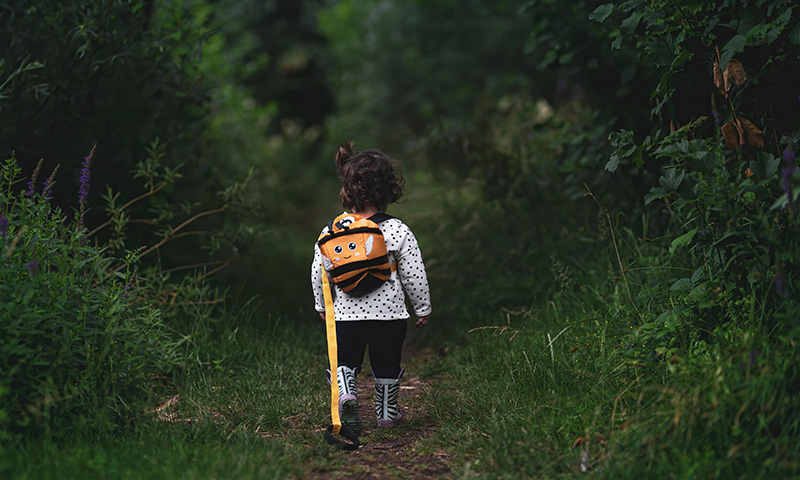Preparing Teens for the Road Ahead: A Parent’s Guide to Healthy Dating By Norma Peterson, Executive Director, Document the Abuse
When a teenager reaches the age where dating becomes part of their world, parents often find themselves torn between excitement and anxiety. Although dating is a natural milestone, a step toward independence and adulthood, parents worry about how to keep their teens safe; emotionally, physically, and especially preserve their digitally.
Like teaching a young driver to navigate the road, preparing teens for dating is less
about control and more about equipping them with the skills to recognize signs, make
informed decisions, and reach out for help if needed.
A simple and effective way to frame these lessons is by using the “traffic light” analogy: green, yellow, and red. This approach empowers teens to recognize healthy behaviors, navigate uncertain situations, and steer clear of danger while keeping the message positive and proactive.
Green Light: Encouraging Healthy Relationships
Just as a green light signal “go,” there are aspects of dating that parents can encourage and celebrate. These are the markers of healthy, respectful, and mutually supportive connections.
Healthy dating starts with communication. A teen should feel comfortable expressing their
interests and establish boundaries without fear of judgment. Encourage your child to notice when a dating partner listens respectfully, values their perspective, and gives space for individuality. A healthy relationship allows both people to continue growing as individuals while sharing experiences together.
Trust is another “green light.” If your teens feel confident that their partner will be honest, supportive, and respectful, they are experiencing the foundations of a safe connection. Remind your teens that respect also means valuing each other’s time, friendships, and family connections, no one should be pressured to cut ties with the people who matter to them.
Parents can reinforce values by modeling healthy relationships in their own lives. Teens learn as much by observation as by instruction. Talking openly about what mutual respect looks like at home can help normalize it in romantic contexts, too.
Yellow Light: Proceed with Caution
Yellow lights don’t always mean danger, they mean it’s time to slow down, pay attention, and evaluate the situation. In the context of teen dating, “yellow light” behaviors are not necessarily harmful, but they can be signals to pause and reflect.
For example, does your teen notice if their partner becomes moody when plans don’t go their way? Do they seem overly dependent on your teens for happiness or approval? Does texting and social media communication feel overwhelming or one-sided?
These yellow-light behaviors often show up subtly. They aren’t always immediate red flags, but they warrant conversation. Parents can help teens by framing these as opportunities to develop critical thinking skills. Ask open-ended questions:
“How did you feel when that happened?”
“What do you think is a fair balance in a relationship?”
“If the roles were reversed, would that feel comfortable for you?”
Encouraging teens to articulate their feelings creates self-awareness and builds the confidence they need to set boundaries. Yellow-light moments are a chance to practice asserting themselves and deciding what feels right.
Red Light: Stop and Reroute
Red lights are clear signals of danger, behaviors that no one should ignore. Parents need to prepare their teens to recognize and respond to these situations.
Red-light behaviors include:
Controlling actions, such as dictating what your teen wears, who they spend time with, or how they use their phone.
Intense jealousy, accusations, or constant “checking in.”
Threats of harm, either to your teens, their family, or themselves.
Any form of physical violence, sexual pressure, or emotional manipulation
These warning signs must be taken seriously. Teach your teens that love should never feel like fear, and that no one has the right to control or harm them. Just like you would insist they stop at a red light to stay safe, insist that they recognize these behaviors as reasons to end the relationship.
It’s also important for parents to prepare in advance for what to do if their teens feel unsafe. Make sure your child knows they can always come to you without fear of punishment or blame. Establish a code word they can text or call with if they need to be picked up discreetly. Talk about safe places and trusted adults they can reach out to.
Preparing for Detours: Talking About Missing Teens
Conversations about safety naturally bring up a parent’s worst fear: a missing child. While rare, these situations can happen, especially when teens are navigating relationships. However, rather than dwelling on fear, parents can approach this topic as part of an overall plan for independence.
Teach your teens the importance of checking in. This isn’t about micromanaging, it’s about accountability. Agree on a system where they share where they’re going, who they’ll be with, and when they’ll be back. Encourage them to keep their phone charged and discuss what to do if they feel lost or unsafe.
It’s also a good idea to role-play scenarios. Ask: “If you couldn’t reach me, who else could you call?” “What would you do if you needed help in a public place?” Framing these discussions as tools for empowerment helps teens feel prepared rather than restricted.
Parents as Co-Pilots:
Ultimately, preparing teens for dating is not about scaring them away from relationships but helping them enjoy the ride safely. Think of yourself as the co-pilot in their car: you won’t always be behind the wheel, but you can help them steer on unfamiliar roads.
Stay approachable. Teens are far more likely to open up about their dating experiences if they feel their parents will listen without immediately judging or lecturing. Express curiosity rather than criticism. Share your own stories of learning from relationships, the good, the bad, and the in-between.
At the same time, stay informed. Learn about the pressures teens face today, from social media dynamics to issues of consent. Knowledge helps parents guide conversations with empathy and relevance.
A Journey Worth Preparing For:
Dating is a natural, exciting milestone for teens, full of opportunities to grow, connect, and discover more about themselves. Parents who approach it as a life skill, like learning to drive, can help their teens navigate with confidence.
By teaching them to recognize green lights of healthy connection, yellow lights of caution, and red lights of danger, you’re not just preparing them for dating, you’re preparing them for all the relationships that lie ahead. And just like learning the rules of the road, these skills can last a lifetime. ❦
 About the Author
About the Author
Norma Peterson is the Executive Director of Document the Abuse, an organization which houses the Evidentiary Abuse Affidavit (EAA) inspired by her missing sister-in-law, Stacy Peterson. She is a nationally recognized victim advocate, speaker, and trainer with over a decade of leadership in the movement to prevent domestic violence and support survivors.
Norma serves as the Illinois State Coordinator for CUE Center for Missing Persons and is a member of the Illinois Domestic Violence Fatality Review Board and the DuPage County Family Violence Coordinating Council. She has appeared on local and major media programs such as Dateline NBC, Crime Watch Daily and Snapped to bring awareness to domestic violence prevention and awareness.
